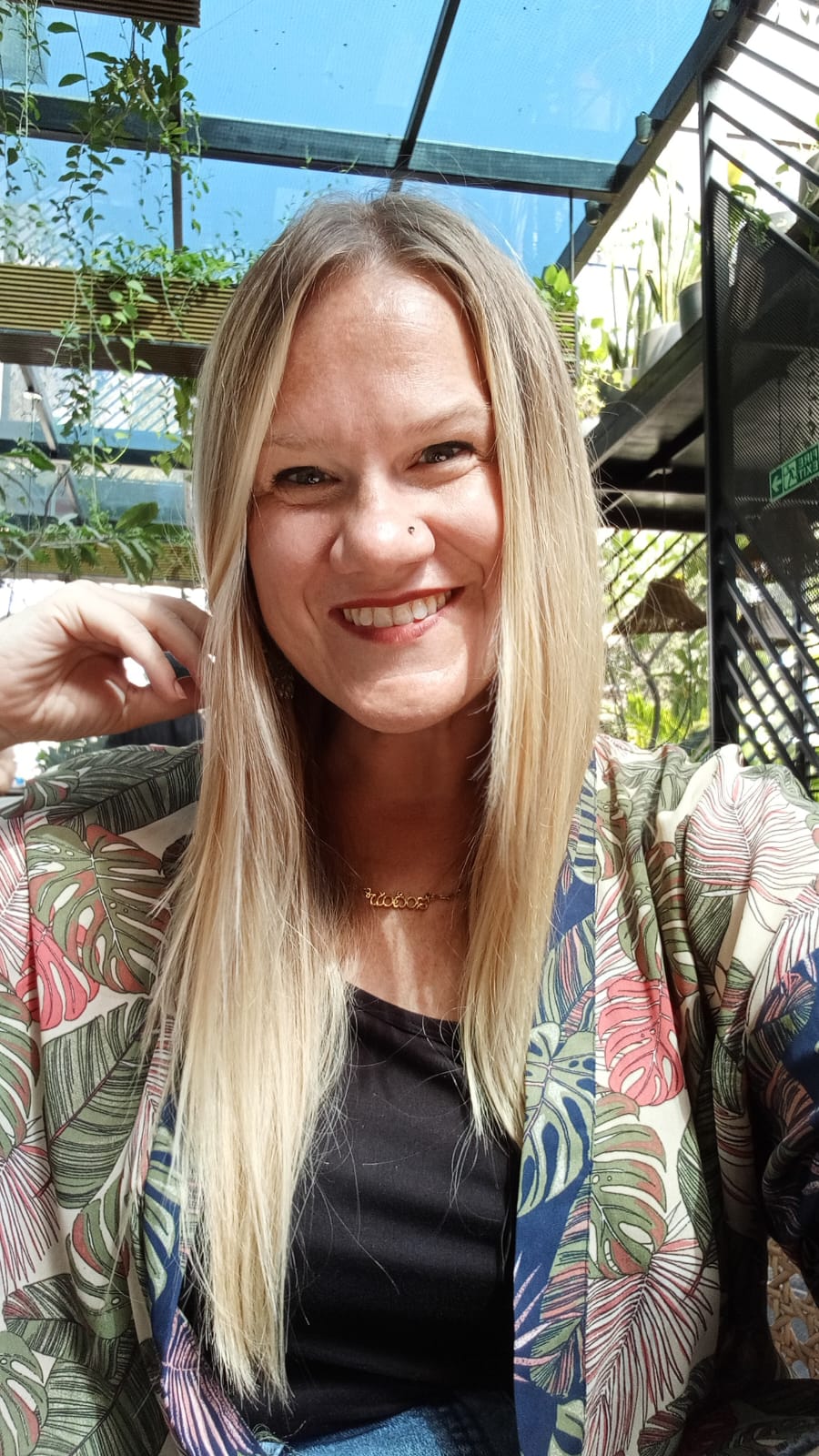April 28, 2025
The American Art Therapy Association represents a diversity of professionals, students, and organizations across the nation. We recognize and celebrate the work of our members at all levels through our Featured Member series.
What inspires you most about your job right now?
As cheesy as it sounds, I am most inspired by my clients- by their creativity, vulnerability, and willingness to trust me as a part of their lives. I am currently most excited about collaborating with community members in north Alabama to provide group art therapy, something that is not currently available in that region of our state.
How have race, diversity, and/or social justice impacted your work as an art therapist?
I have volunteered with workshops in India and have worked with people from over fifteen nations here in the US. I love and embrace those who are different from myself, and diverse in culture, background, race, and religion. This diversity has impacted my work as an art therapist by challenging me to have better communication (especially with those who speak different languages), improved accessibility to resources, and an openness to truly see and learn from those who are different from me.
Has working with a particular client group shaped your professional focus or specialty? What have you learned from working with these clients?
I have worked with populations of individuals with complex trauma, from inner city violence and broken homes, to refugee students and their families, to extreme sexual abuse, depression, and suicidality- all children and youth. They have absolutely shaped my focus and speciality in trauma-informed care, and they were the reason that I pursued my doctorate to further research and practical resources for practitioners and educators in the field.

“I would love to see art therapists united in purpose and vision in our field across the world. Additionally, I would love to see increased quality research, more advocates for art therapy, and for our next generation of art therapists to lead the way in these efforts.”
— Alison N. Kearley, ATR-BC, LMHC, LPC, MS Art Therapy, Doctoral Candidate
What advice would you give someone interested in pursuing a career in art therapy?
My advice to those who are considering art therapy as a career is this: Art therapy is an incredibly rewarding and difficult mental health profession that can inspire, challenge, and fulfill you as a practitioner, and it has a unique community with strong, deep roots. With that being said, if you want to enter the field of art therapy solely to heal yourself or you do not desire to serve and collaborate with those around you in humility and compassion, please pursue another field.
What’s your engagement with AATA and how did you first get involved?
I first got involved with AATA as a student at Florida State University and have been engaged with AATA in various ways over the past twelve years… We have an incredible, global community of art therapists, and it’s truly my pleasure and honor to be able to connect with such an amazing group of people!
Most recently, I am collaborating on efforts to revitalize the Alabama ATA and grow our art therapy network here in Alabama. Additionally, I am spear-heading collaboration to advocate for art therapy licensure in Alabama.
About Alison N. Kearley, ATR-BC, LMHC, LPC, MS Art Therapy, Doctoral Candidate

Alison N. Kearley is a Board-Certified Art Therapist, Licensed Mental Health Counselor, and Licensed Professional Counselor. She has ten years of experience as an Art Therapist, and has worked in various environments with children, youth, and adults, including in public schools, state prisons, and juvenile justice facilities, and children’s group homes. She is passionate about the power of the arts to reignite hope and imagination in her clients, and she believes that art and creativity are something all people, regardless of ability, have the capacity for. Alison is also the founder and director of Creative Hope Therapies, and is currently beginning group art therapy and community based services in north Alabama. She is spearheading collaborative efforts to increase awareness and advocacy across Alabama for art therapy and for the needs of students with disabilities and the educators who serve them. Additionally, Alison expects to complete her Doctor of Philosophy in Special Education at the University of Alabama in December 2025. She has taught as an Assistant Professor in Hyderabad, India, and is currently one of two inaugural Policy Fellows with the Teacher Educator Division of the Council for Exceptional Children. She has multiple peer-reviewed publications and hopes to continue research for art therapy and students with disabilities and mental health needs.
You can learn more about Alison on her website: https://www.creativehopetherapies.com or on her LinkedIn.
